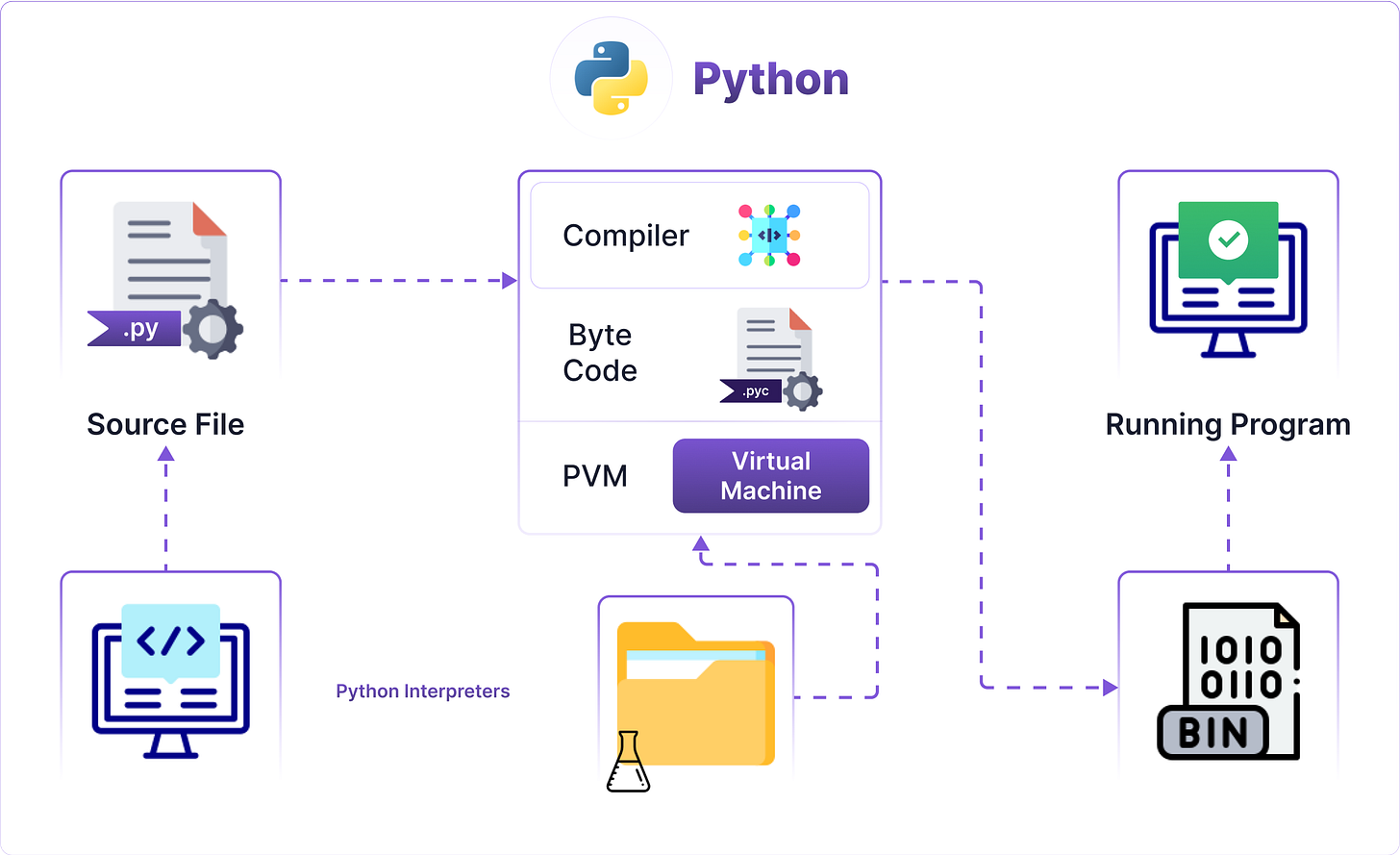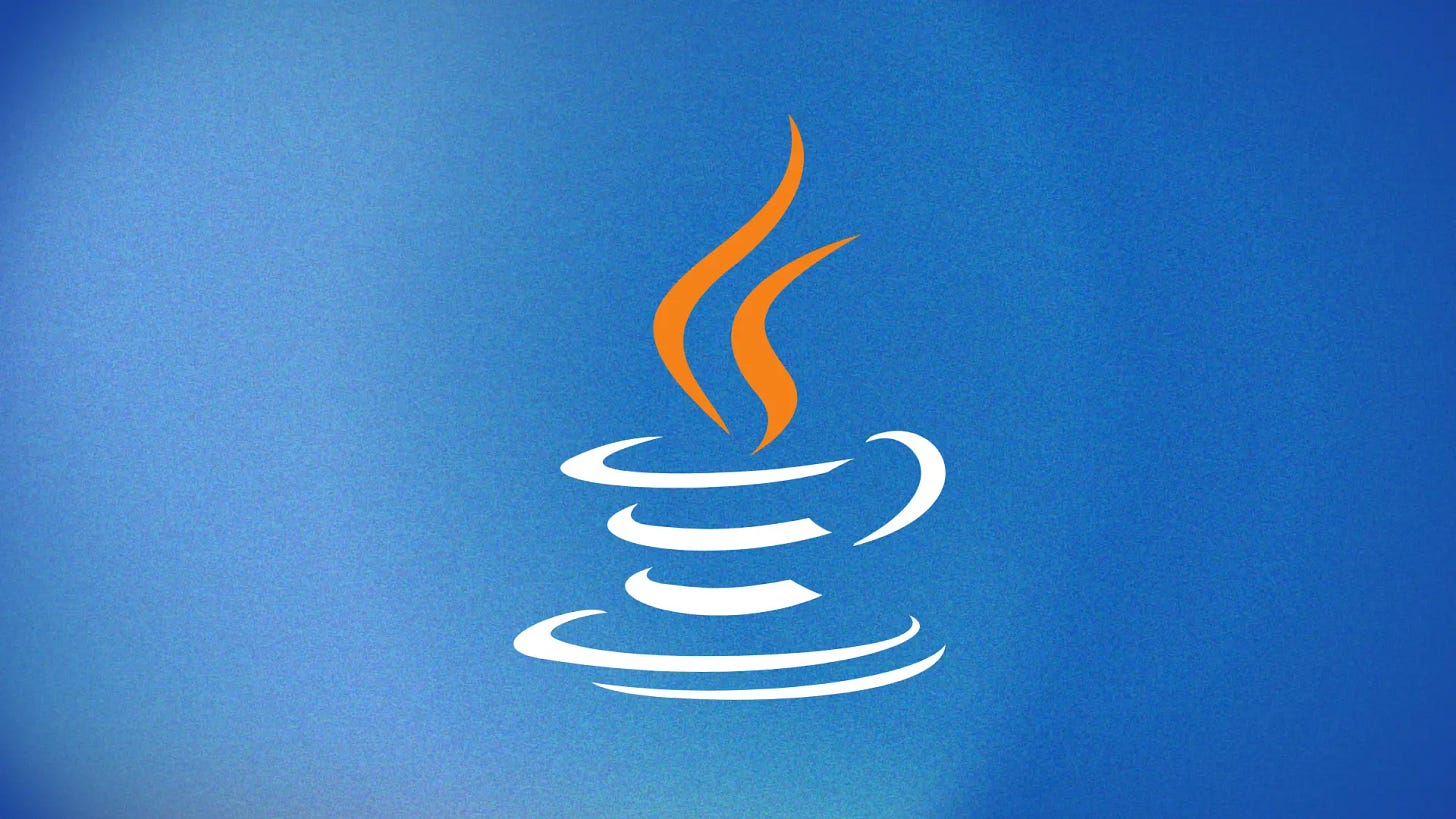Java vs Python
What Happens Behind the Scenes?
When you write code in Python or Java, you're usually focused on solving a problem—not thinking about what happens after you hit "Run." But understanding how your code is executed can give you a big advantage, especially when debugging or optimizing performance.
Let’s take a peek under the hood of both languages.
☕ Java Execution Flow
Java is a compiled language with a hybrid execution model, offering both performance and portability.
Here’s the flow of a typical Java program:
Write Java Code: You create a
.javafile in your editor.Compilation: The Java compiler (
javac) converts the source file into bytecode (.classfiles).JVM Execution: The bytecode runs on the Java Virtual Machine (JVM).
Just-In-Time (JIT) Compilation: The JVM includes a JIT compiler, which turns bytecode into native machine code on the fly for better performance.
Libraries and Runtime: Java uses the Java Runtime Environment (JRE), including built-in libraries and dependencies, to support program execution.
✅ Java’s JIT compiler gives it a speed advantage, especially for long-running or high-load applications.
🐍 Python Execution Flow
Python in contrast is often called an interpreted language, but there's a bit more going on than just line-by-line interpretation.
Here’s what happens when you run a Python program:
Write Python Code: You create a file with a
.pyextension.Compilation to Bytecode: The Python interpreter compiles your code to bytecode (
.pyc), which is a lower-level, platform-independent representation.Execution by PVM: The bytecode is executed by the Python Virtual Machine (PVM).
Use of Libraries: Python imports necessary standard or third-party libraries to complete execution.
⚠️ Python doesn’t use a JIT compiler by default, which means it interprets code at runtime—great for flexibility, not always for speed.
📌 Key Takeaways: Python vs Java in the Real World
Choosing between Python and Java isn’t just about syntax or speed—it often comes down to what you’re building and who’s on your team. Here’s a deeper look at when and why you might choose one over the other.
Java: Built for Scale and Performance
Java is designed with performance, reliability, and scalability in mind. It's statically typed and compiled, which helps catch errors early and run programs efficiently across platforms.
🔧 Common Use Cases:
Enterprise Backend Systems: Java powers the backend of many large-scale applications and systems, from banking software to e-commerce platforms.
Android App Development: Java was the official language for Android development for years and remains widely used alongside Kotlin.
Cloud & Microservices: With frameworks like Spring Boot, Java is a strong choice for building scalable, distributed systems and APIs.
High-Performance Applications: Java’s Just-In-Time (JIT) compiler and mature performance tooling make it great for handling high-load environments.
Big Data Ecosystems: Java is also behind the scenes of tools like Hadoop and Apache Spark (even though APIs for them often exist in Python too).
✅ Why choose Java? You’re building a robust, long-term system that needs high performance, strong type safety, and broad platform support.
Want to learn Java?
Python: Built for Speed of Development, Not Execution
Python is ideal for rapid development, experimentation, and readability. Its concise syntax and vast ecosystem of libraries make it a favorite among developers who want to build and iterate quickly.
🔧 Common Use Cases:
Machine Learning & AI: Python dominates this space thanks to libraries like
TensorFlow,PyTorch,Scikit-learn, andPandas. Data scientists love Python for its ease of use in prototyping and data manipulation.Data Analysis & Visualization: Tools like
NumPy,Matplotlib, andSeabornmake Python a go-to language for data-driven work.Web Development: Frameworks like
DjangoandFlaskallow fast creation of web apps and APIs.Automation & Scripting: Python is often used to write scripts that automate repetitive tasks, from file handling to server management.
Education: Its simple syntax makes it perfect for teaching programming to beginners.
✅ Why choose Python? You need to get ideas to production quickly, work with data, or build prototypes without worrying too much about runtime performance.
Happy coding.






amazing this paper,
I like and riding new information,
I love Python and Java.
Thank you Mama Samba 💯
Insightful